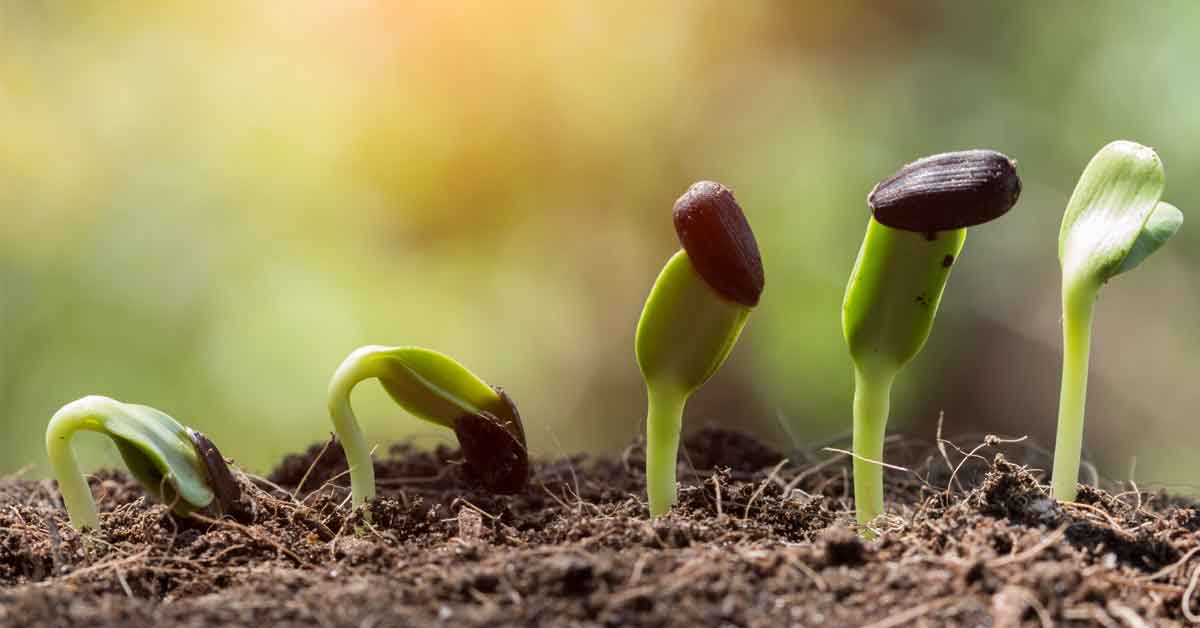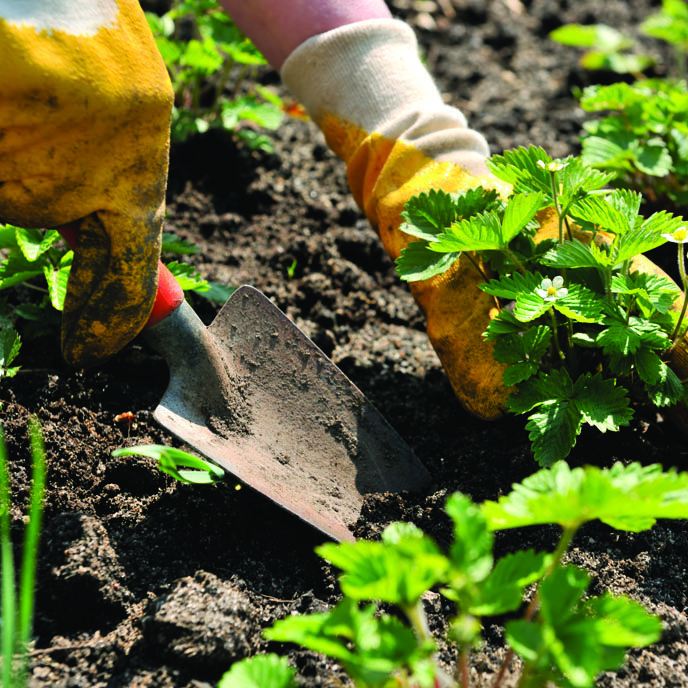The Beginner's Plan: Newbie Gardening Practices and Principles
Wiki Article
From Seed to Harvest: a Beginner's Trip Into Gardening
From Seed to Harvest: A Beginner's Trip Into Horticulture uses a insightful and detailed guide for those new to the globe of gardening. This book takes viewers via the entire process, beginning from selecting the right seeds and preparing the dirt, to nurturing the growing plants and ultimately harvesting and enjoying the homegrown produce. Created in a professional design, this overview offers essential pointers and methods to help novices effectively grow a prospering garden. With a focus on practicality and clearness, this publication intends to empower people with the knowledge and skills required to begin on their gardening journey. Whether you have a small veranda or a sizable yard, this guide will outfit you with the devices needed to turn your horticulture goals into a prospering fact.Picking the Right Seeds
When beginning on the trip of horticulture, choosing the ideal seeds is a vital action for beginners to ensure effective farming. newbie gardening. The option of seeds can greatly influence the total result of a yard, as various ranges have differing growth routines, disease resistance, and flexibility to particular climatesTo start, it is necessary to take into consideration the certain objectives and choices of the gardener. Are you interested in expanding veggies, flowers, or natural herbs? Do you have a particular color or flavor in mind? Comprehending these aspects will help limit the alternatives and make the option process less complicated.
Additionally, it is important to study and choose seeds that appropriate for the neighborhood climate and expanding problems. Some plants grow in complete sunlight, while others prefer shade or a specific kind of soil. By selecting seeds that are inherently adapted to the environment, newbies can conserve themselves from potential disappointment and irritation.

Preparing the Soil for Growing
After choosing the appropriate seeds for your yard, the next critical action in the novice's trip into gardening is preparing the dirt for growing. Proper dirt prep work is necessary for providing a healthy and balanced and abundant atmosphere for your plants to expand and prosper.The initial action in preparing the dirt is to remove any weeds, rocks, or particles that may impede the development of your plants. This can be done by hand or with the help of gardening tools such as a garden or a trowel fork. Once the location is clear, it is very important to loosen up the dirt by tilling or transforming it over. This not just aids to separate any compressed soil yet additionally improves oygenation and drain.
Including natural matter to the soil is one more essential action in soil prep work. Raw material, such as compost or well-rotted manure, improves the dirt with important nutrients and improves its structure. It likewise helps to preserve moisture, which is essential for plant development. Spread out a layer of raw material over the tilled dirt and blend it in extensively.
Last but not least, it is necessary to examine the pH degree of the soil (newbie gardening). A lot of plants choose a slightly acidic to neutral pH range. Changes can be added to readjust the pH level appropriately. if the soil is too acidic or alkaline.
Sowing and Taking Care Of Seedlings
To ensure the successful development of your plants, appropriate sowing and cautious nurturing of plants is essential, building on the soil prep work talked about in the previous subtopic. Sowing seedlings is a crucial action in the gardening process, as it sets the foundation for strong and healthy and balanced plants. When sowing, it is essential to follow the instructions on the seed packages concerning planting deepness and spacing. This will certainly ensure that the seedlings have adequate room to expand and develop effectively.
In addition to light, plants need consistent dampness to thrive. Water the seedlings frequently, keeping the soil uniformly moist however not soaked. Overwatering can cause root rot, while underwatering can trigger the plants to perish and pass away.
To better sustain the growth of seedlings, provide them with a mild breeze. This can be attained by utilizing a tiny follower on a low setup. The breeze helps reinforce the stems of the seedlings, making them extra resistant to wind and other ecological aspects.
Nurturing Your Expanding Plants
- As soon as your plants have sprouted and started to grow, it is necessary to give appropriate care and attention to support their continued development. This consists of giving ample water, sunlight, and nutrients, as well as protecting them from insects and diseases.
Sprinkling your growing plants is vital to their survival. Water your plants consistently, particularly throughout warm and completely dry durations, and make sure to water them at the base to avoid wetting the vegetation, which can welcome fungal illness.
Sunshine is another essential element for the healthy development of your plants. Make certain that your plants are placed in an area that receives adequate sunshine, and if you're growing them inside, consider using expand lights to supplement all-natural light.
Offering your plants with the ideal nutrients is important for their development. Furthermore, consider making use of organic fertilizers that are gentle on plants and the environment.
- Safeguarding your plants from bugs and diseases is critical to ensure their well-being. Frequently check your plants for signs of infestation or disease, and take suitable actions such as utilizing organic parasite control methods or removing infected plants to stop the spread.
Harvesting and Appreciating Your Homegrown Produce
As soon as your plants have actually reached maturation, it's time to reap the incentives of your gardening initiatives by collecting and appreciating the fruits (or veggies) of your labor. Before you start harvesting, it's crucial to determine the optimum time for each plant.When it concerns harvesting, it is very important to manage the fruit and vegetables with care to avoid damages. Make use of a sharp pair of yard shears or scissors to reduce the fruits or veggies from the plant. Be conscious not to yank or draw, as this can harm the plant and lower future yield. It's also critical to wash the fruit and vegetables thoroughly prior to usage to remove any type of dust or debris.
As soon as you have gathered your domestic fruit and vegetables, it's time to appreciate the fruits of your labor. Take a minute to appreciate the hard job and commitment that went right into your yard and enjoyment in the flavors of your homemade harvest.
Verdict

Some plants prosper in complete sun, while others like reference shade or a certain type of soil.The first step in preparing the dirt is to remove any weeds, rocks, or particles that might impede the growth of your plants.To guarantee the effective development of your plants, appropriate sowing and mindful nurturing of plants is essential, developing upon the soil prep work gone over in the previous subtopic. Routinely evaluate your plants for signs of invasion or illness, and take suitable measures such as utilizing organic bug control methods or getting rid of contaminated plants to Resources protect against the spread.
In conclusion, this novice's journey right into gardening highlights the relevance of picking the right seeds, preparing the soil, sowing and caring for plants, nurturing expanding plants, and lastly, collecting and appreciating the domestic produce.
Report this wiki page